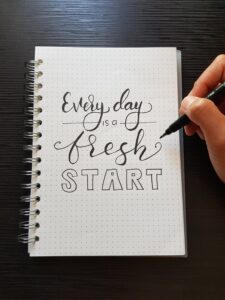
Over a decade ago, while in psychiatry residency training, I’d put long days in at the hospital and counsel people on self-care with the use of western therapeutic modalities- namely psychopharmacology and psychotherapy- and let them know how to reach me in cases of emergencies. These were all effective tools. But it occurred to me that when I was in need of my own radical self-care during those times of great stress and the necessary painful growth that comes with the rigor of residency training, I’d head straight to my yoga mat. That was where I found the resources I needed to manage the intensity of those years and the ones that followed, as I became an attending psychiatrist learning to work with people in their most extreme states coping with great stress and pain. The resources that I found on the yoga mat turned out to be internal ones, already there, just waiting to be accessed and honed.
Fast forward years later, during a time of real grief, I found my way back to my yoga mat after a when-life-gets-in-the-way hiatus, and it quickly dawned on me that I was leading a double life. My go-to strategies for healing were quite different than those I offered to my clients—a split that needed reckoning. I was withholding powerful tools that I relied on fully, yet I felt somehow didn’t have a place in my ‘consulting room’ as a psychiatrist. After all, I was trained from the more traditional psychoanalytic stance of being a neutral, somewhat blank slate on which my clients could project whatever it was they needed to work through in whatever way they needed. Was there really room for me to talk about chest opening positions to feel lighter, more open, and a general sense of wellbeing, or taking mid-day 10-minute breaks to lie on the floor to ground oneself? It just didn’t quite jibe with my training or my professional sense of self at the time.
Around that time at one of my most cherished places, Kripalu in Stockbridge, MA, (www.kripalu.org) during a four-day mostlysilent retreat on my own, I happened upon an introductory lecture on Ayurveda given by the Dean of The School of Ayurveda at that time. I’d heard of Ayurveda and saw a documentary on this traditional Indian medicine years before, but I didn’t know that this holistic medicine, as it was presented to me that day, had all of the elements of healing that I relied upon—diet, lifestyle principles, yoga, meditation, mindfulness, discernment when choosing relationships, and connectedness with a healthy and supportive community. It was an ah-hah moment for me. I followed the Dean to her office and enrolled in Kripalu’s School of Ayurveda later that week. Now, several years later and more than 650 hours of training, I am a certified Ayurvedic Health Counselor with honed skills and tools to not just practice a healthy and balanced lifestyle in my home, but also to share in my work with clients. And I’ve found these tools to be a great complement to the western modalities that people generally expect from their psychiatrist.
It turns out that I was far from alone. Once I took those first steps in acknowledging that there seemed to be more to healing than my western training provided and I found the nerve to start talking about it with my colleagues, I realized that there were many of us at Prakash Ellenhorn who were also searching for more. It didn’t take long before we established our Mind Body Group—and we’ve met regularly since to explore, support, and learn from each other. We have a varied skill set, yet a shared commitment to complementing our clients’ treatment plans with mind body practices, many of which are traditional in nature, but also have been well researched at this point and are now considered evidence-based approaches to improving health.

And now we’ve taken our group on the road. We’ve offered workshops to the public as well as our clients and their families and, most recently, we’re connecting with Boston’s integrative medicine community. Lisa Carabuena LMHC, our Mind Body Program Coordinator, and I attended this year’s Benson-Henry Institute ‘s conference at Harvard Medical School entitled Mind-Body Medicine: Its Role in Compassionate Care(www.bensonhenryinstitute.org) where we spent the weekend with hundreds of colleagues from all over the globe learning about cutting-edge research, complementary clinical practices, and exploring new ideas in integrative medicine as a community. I reconnected with my MGH colleagues at The Benson-Henry Institute, both researchers and clinicians, who are also on this path towards integration, working diligently to find the evidence to legitimize these practices in western terms and designing clinical protocols to mainstream these practices. We also connected with old and new colleagues at the Osher Center for Integrative Medicine’s Networking Forum in November (www.oshercenter.org) and now I’ve been added to their network of integrative medicine clinicians in this area.
Exciting stuff in our own backyard (we’re so lucky to actually have Boston as our backyard with its robust resources all around). We’re eager to continue to utilize these community-based resources as we build our own program here at our PE home to offer our clients the best of what eastern and western approaches have to offer. By connecting with the larger integrative medicine community, we’ve learned that the clinicians in our Mind Body Group are actually pioneers in bringing these practices to our clients who not only deal often with significantly difficult psychiatric experiences, but also with the documented social stress and even trauma of being identified and treated as mentally ill, and for whom most studies and protocols are not offered. There’s an opportunity here for us to think creatively and innovatively to make these practices accessible and manageable for our unique clients whom we believe can benefit greatly from these approaches.
Who knew that in the span of a decade, the landscape of mental health could shift so much that what seemed to be risk taking in my clinical work just years ago is now considered to be mainstream? We’ve definitely come a long way and there’s so much more work to do. Please take a look at our Mind Body Program’s offerings and stay tuned…there’s much more to come.


